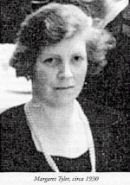Arsenicum [Ars]
Useful in advanced and desperate heart cases.
Palpitation, with anguish; cannot lie on back: worse going up stairs. Heartbeats irritable.
Palpitation and tremulous weakness after stool.
Angina pectoris; sudden tightness above the heart; agonizing precordial pain; pains extend into neck and occiput;
(Latrodect. and Kalm. to left arm and hand); breathing difficult; fainting spells. Least motion makes him lose his breath; sits bent forward, or with head thrown back. Worse at night, especially 1-5 a.m.
Rheumatism affecting heart, with great prostration, cold, sticky sweat; great anxiety and oppression; burning about the heart.
Pulse small, rapid, feeble: intermittent.
Valvular disease, with dyspnoea, anasarca.
Hydropericardium with great irritability, anguish and restlessness.
N.B.-The cardinal symptoms of Arsenicum are generally present: extreme restlessness, driving out of bed, or from bed to bed. Thirst for small quantities, often. Aggravation from cold: relief from heat. (Reverse of Apis.) But one has seen Arsenicum rapidly curative in a desperate case of hydropericardium, where these were absent.
Apis [Apis]
“The lancinating, darting pains, palpitation, orthopnoea, have rendered Apis invaluable in cardiac inflammations and dropsy.”
Sudden oedema, dyspnoea, and sudden lancinating or STINGING pains, restlessness and anxiety.
Think of Apis of burning and stinging pains-anywhere.
Apis is generally thirstless.
Is worse after sleep: from warm room, and heat: better cold air, cold room, cold applications. (Reverse of Arsenicum)
“Skin alternately dry and hot, or perspiring.”.
Sulphur [Sulph]
Anxious palpitation. Violent palpitation.
Rush of blood to heart. “Too much blood in heart.” (Cact.) Heart feels enlarged.
Great organs of blood, with burning hands.
Stitches heart and chest; worse deep breathing.
Sulphur is hungry-untidy-argumentative.
Worse heat: intolerant of clothing: fond of fat.
Complaints relapse. Suppressed eruptions.
Pulsatilla [Puls]
Rheumatic irritation of heart, where pains shift rapidly about the body.
Heart symptoms reflex from indigestion.
Heaviness, pressure, fullness (heart). Violent palpitation with anguish: sight obscured.
Patient nervous, weepy, intolerant of heat: craves air, and fuss.
Phosphorus [Phos]
Palpitation: violent: on slightest motion.
Violent, lying on left side.
Precordial anguish from emotion.
Heaviness, chest, as if a weight lying on it.
Constriction: pressing sensation about heart.
Burning pain between scapulae. (Lycopodium)
The Phosphorus type: tall, fine: fear alone, dark, thunder. Thirst for cold drinks.
In cases that do not respond normally to treatment one must not forget the Nosodes. One of Hahnemann’s “Chronic parasitic diseases” may be the bar to progress in acute sickness also-and that not only with tubercle, syphilis and gonorrhoea, but also in regard to scarlet fever, diphtheria, small-pox, measles and all the rest. Therefore, one should remember:-.
Tuberculinum [Tub]
Heart cases where there is a family, or past history of tubercular manifestations.
Bacillinum [Bac]
Palpitation: heaviness: pressure over heart.
Irritable: irritable on waking: nothing pleases: nothing satisfies.
“Wants to travel: cosmopolitan condition of mind.” Suffocates in a warm room. (Pulsatilla).
Medorrhinum [Med]
Heart felt very hot: beat fast: with bursting sensation: or feeling of a cavity where heart ought to be.
Sharp pain at apex, worse motion.
Great pain; heart, extending to left arm (Latro. mact.) and throat.
Intense pain, heart, radiates to all parts of left chest: worse least movement.
The troubles of Medorrh. are worse by day- sunrise to sunset.
Those of Luet. by night: sunset to sunrise.
Medorrh. is rich in mental symptoms: everything seems unreal, like a dream.
Time moves so slowly: things done an hour ago, as if done a week ago. (Cann. ind.)
Anguish: introspection: always anticipating evil happenings. “Someone behind her.”
Cannot concentrate: forgets what she is reading: cannot spell simple words.
News coming seems to touch her heart before she hears it.
Lueticum [Syph]
Pain and pressure behind the sternum.
Lancinating pains in heart at night, base to apex (Medorrh. is worse by day).
Diphtherinum [Diph]
Needs proving: but with history of diphtheria.
Feeble, irregular or intermittent pulse, quick or slow, with vomiting and cyanosis.
Crataegus oxy. (Hawthorn berries) [Crat]
An Irish doctor is said to have made a reputation by using Crataegus in heart disease.
“Weak heart muscles.”
Pulse irregular, feeble, intermittent.
“Must be used for some time to obtain good results. (Boericke.).

